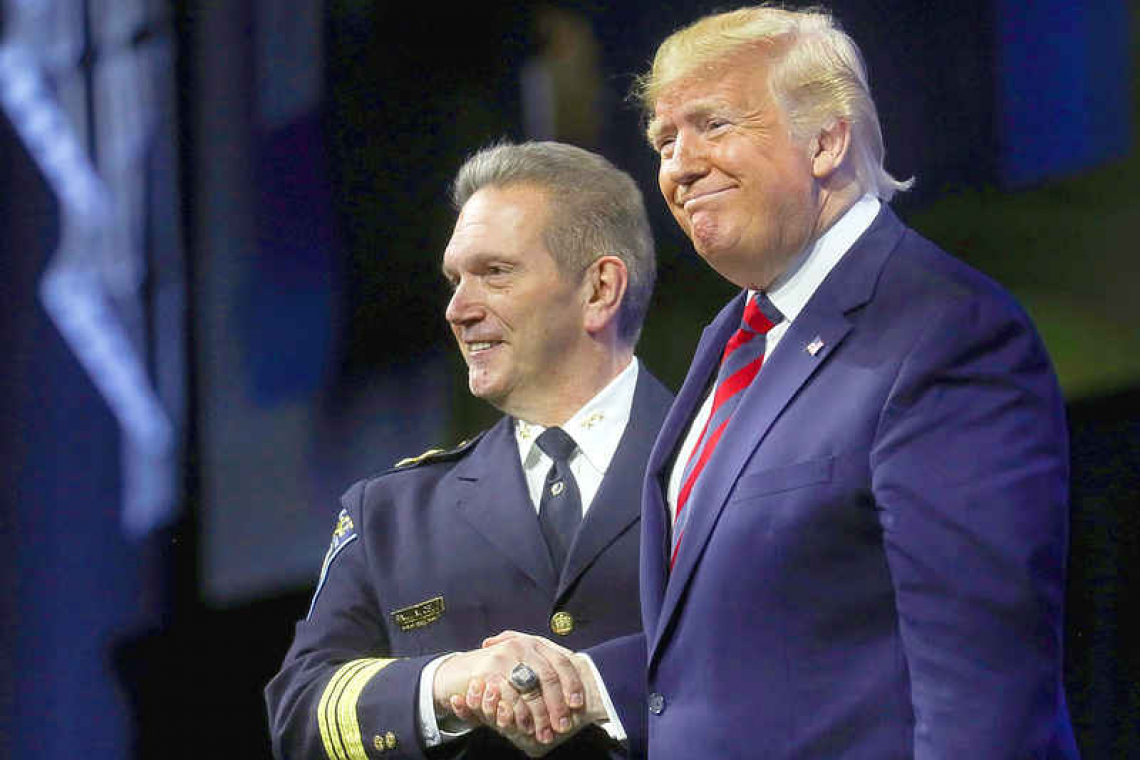WASHINGTON--Before a U.S. federal judge on Thursday halted the work of a Trump administration law enforcement commission - saying it had violated public meetings laws - the panel had been warned about shutting out public input by several of its own participants, internal records reviewed by Reuters show.
The commission had planned to deliver a slate of proposals recommending sweeping new powers for police shortly before the November presidential election, the documents show. It also called for bolstering due-process protections for officers accused of wrongdoing, according to draft proposals reviewed by Reuters.
But the secretive process to produce the planned report drew criticism from some law enforcement representatives helping draft the document, internal emails among the participants show. The order to halt the commission's work, from U.S. District Judge John Bates, came in response to a lawsuit filed by the NAACP Legal Defense and Educational Fund (NAACP LDF) alleging the commission failed to give notice of public hearings and allowed law enforcement groups to have undue influence.
The panel's 18 commissioners include federal, state and local law enforcement representatives, but no civil rights advocates, defense attorneys or big-city police officials.
Among the participants who warned the panel about its closed process was Fayetteville, North Carolina Police Chief Gina Hawkins, a commission member. In an May 11 email reviewed by Reuters, she told commission chairman Phil Keith that drafting recommendations without hearing from all sides created the appearance of a predetermined conclusion.
Then on Aug. 13, she complained the draft contained too many quotes from Trump and Barr, rather than experts who provided input to the commission, saying the work "should never be political."
Hawkins declined to comment. Keith did not respond to a request for comment. Justice Department spokeswoman Kristina Mastropasqua said that Keith acknowledged Hawkins' question and told her that the reports would not be final until all testimony was received.
Two local prosecutors assigned to smaller working groups that support the commission - John Choi of Ramsey County, Minnesota, and Mark Dupree of Wyandotte County, Kansas - wrote to the panel on May 29 expressing concern its recommendations would not sufficiently address "racial disparities in policing" and would "erode local prosecutorial discretion."
Choi has since asked for his name to be removed from the final report. He told Reuters the commission declined to give him access to recommendations being crafted by other working groups. Dupree did not respond to a request for comment.
The White House declined to comment on the panel's work or the court ruling, referring questions to the Justice Department.
Prior to Judge Bates' ruling on Thursday, Mastropasqua declined to comment on other aspects of the commission's work or the draft proposals reviewed by Reuters. Department spokeswoman Kerri Kupec declined to comment on the ruling after it was issued.
In unveiling the panel last year, Trump foreshadowed that it would produce a report that would be applauded by law enforcement. He told a conference of the International Association of Police Chiefs (IACP) in that the administration would begin immediately implementing the commission's best recommendations once it issued them.
"They'll have them soon," he said, "because most of them already know many of the answers before they begin; you understand that."
Concerns about systemic racism in policing were not addressed in any of the draft sections of the document seen by Reuters. The lack of diverse viewpoints prompted the NAACP LDF to sue the commission, Barr and top commission members, accusing them of violating the Federal Advisory Committee Act (FACA) by not providing notice of public hearings and stacking it with only law enforcement officials.
The government denied the civil rights group access to "a representative voice on the Commission," Bates wrote in his ruling on Thursday. The court ordered the panel to halt work and provide timely notice of meetings, and ordered Barr to appoint a federal official to ensure that the commission has a "fairly balanced membership." Bates barred the commission from publishing a report until it had complied with federal open meetings and transparency laws.
Amid complaints about a lack of diverse input, the commission actively sought the opinions of law enforcement insiders, commission records reviewed by Reuters show.







